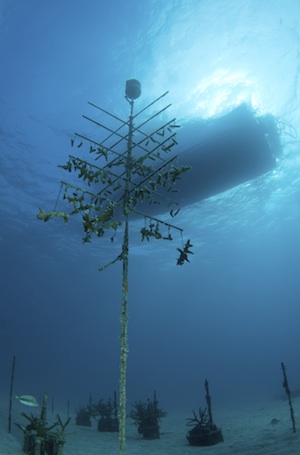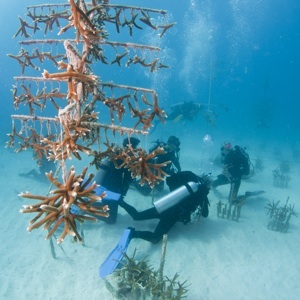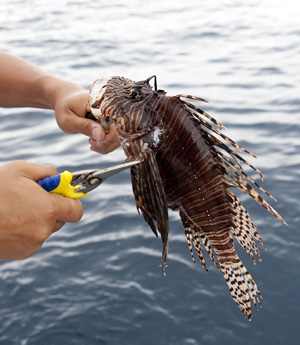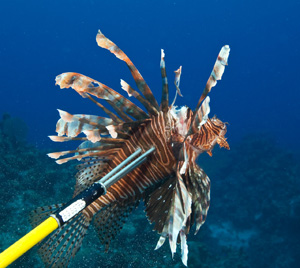Divers Give Back to Keys Ecosystem
Divers play a significant role as stewards of the world's oceans. They can give back to the living, dynamic ecosystem of the Florida Keys through "voluntourism" vacations, helping to protect the continental United States' only living coral barrier reef by volunteering purposefully for the greater good.
Recreational sport divers can join ongoing coral restoration and propagation efforts with marine scientists from Key Largo's Coral Restoration Foundation and Mote Marine Tropical Research Laboratory, a fully equipped facility located on Summerland Key as a substation of Sarasota-based Mote Marine Laboratory.
They learn about environmental impacts on Keys reefs through education, and participate in hands-on restoration dives. Endangered base-building corals include boulder, brain and star corals, and two branching species, staghorn and elkhorn, which can be propagated quickly to create new habitats.
On working dives to coral nurseries, volunteers clean and prepare corals for planting. An orientation dive at a restoration site shows firsthand the evolution of corals over time.
"This is something the average person can get their hands on and do," said CRF Director Ken Nedimyer. "Volunteers can take the experience back to their home communities — it is a grass-roots way of giving people ownership."
Capturing lionfish helps prevent the invasive Indo-Pacific species from voraciously preying on invertebrates and juvenile fish such as grunts and hamlets, and stealing resources from domestic species like grouper and snapper.
The popular aquarium fish, probably introduced to Florida waters during the 1980s, has no natural reef predators except humans.
The Keys' Reef Environmental Education Foundation, whose mission is to conserve marine ecosystems, partnered with the Florida Keys National Marine Sanctuary and the dive community to create awareness about the importance of capturing and removing lionfish from Keys waters.
There is no season or size limit for lionfish. Recreational lionfish roundups provide divers a chance to earn prizes, sample the tasty edible fish and help preserve reef ecosystems.
The Florida Fish and Wildlife Conservation Commission also established an annual Lionfish Removal and Awareness Day throughout Florida, set for the first Saturday in May following Mother's Day.
"For Keys visitors who enjoy our natural resources, this is hands-on action for them to help protect and preserve those organisms with these focused opportunities to remove lionfish," said REEF founder Lad Akins.
Divers also can contribute through everyday conservation actions to leave an area cleaner than they found it.
Cutting and removing monofilament fishing line eliminates a potential entanglement for other divers and marine life. Picking up lost fishing tackle as well as removing cans, bottles, plastics and refuse makes a huge difference over time.

Divers learn about environmental impacts on Keys reefs through education, and participate in hands-on restoration dives.

Endangered base-building corals include boulder, brain and star corals, and two branching species, staghorn and elkhorn, which can be propagated quickly to create new habitats.

Venomous (not poisonous) spines are removed prior to preparing and cooking this tasty edible fish.

There is no season or size limit for lionfish.

